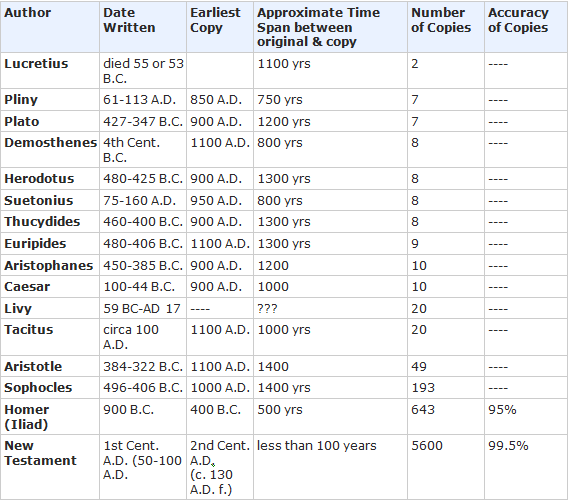amishrockstar
Puritan Board Freshman
In English class today, a teacher mentioned that the Bible is generally viewed as literature (and nothing more) because it is not verifiable. At the time, I wasn't quite sure how to answer such a sweeping statement. After giving it more thought, I figured that I could've said that it's just as verifiable as any other historical document --we check with eyewitnesses, go to the historical sites, etc. etc.
How would you have answered the teacher's claim?
What about certain aspects of biblical passages that aren't yet verifiable in a "lets go see and find out" manner, such as the tomb of Jesus?
Thanks,
Matthew
How would you have answered the teacher's claim?
What about certain aspects of biblical passages that aren't yet verifiable in a "lets go see and find out" manner, such as the tomb of Jesus?
Thanks,
Matthew


